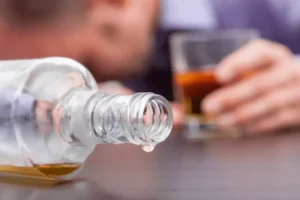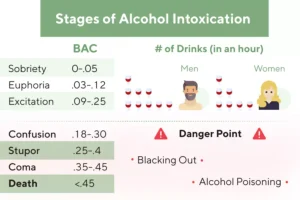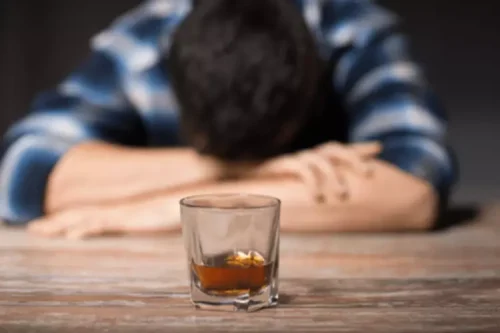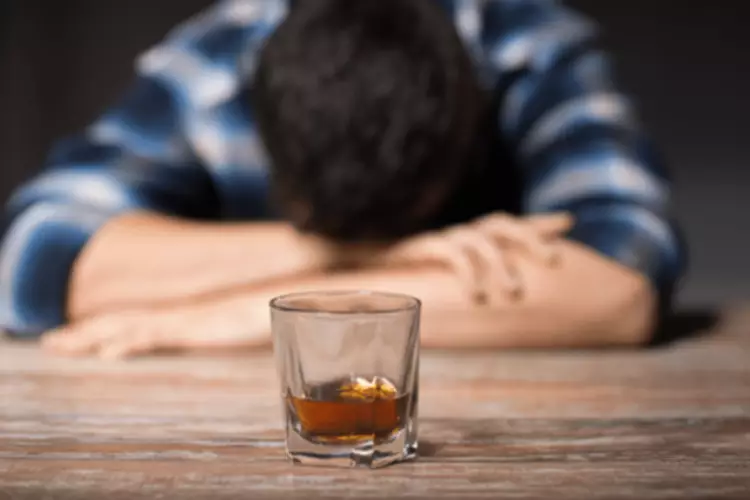Certificado de Calidad
ISO 9001:2015 / ES-0395/201413 enero, 2022

When you remain in a calorie deficit for a period of time, your body will begin to burn fat stores for energy. Moderate alcohol consumption shouldn’t cause any significant weight gain as long as you do everything else right. But if you aren’t able to eat right when drinking, it’ll significantly affect how you accumulate fat. Insulin resistance is also higher after not getting enough proper sleep after consuming alcohol, making it more likely your body will preferentially store calories as fat (8). So achieving insulin sensitivity is a big part of losing weight and getting rid of abdominal fat.
Vodka and Weight Gain
Cocktails and mixed drinks often have more calories than beer and wine. For example, what is alcoholism a piña colada has as many as 500 calories per seven-ounce serving. Still, there are a few things you may want to know about alcohol intake and body composition if you think drinking may affect your weight. When you mix drinks with sugary sodas or juices, those calorie counts can soar. The amount you drink matters too—more drinks mean more calories, which can add up to temporary weight gain. If you’d like to prevent weight gain and still enjoy drinking, try choosing lower-calorie alcoholic beverages and manage how much alcohol you consume.

Does Alcohol Really Kill Brain Cells?
A simple vodka, lime, and club soda will be one of the best bets if you don’t want to keep the pounds off. Studies have also found that your self-control is lower after a poor night’s sleep (7). You’ll also have higher hunger and less satiety after a night of drinking and poor sleep. Of course, this makes it easier to eat bad foods and even more alcoholic drinks. This can cause you to feel tired and groggy the next day, leading to increases in stomach fat.

Alcohol makes you more sedentary.
- Plus, most alcoholic beverages have a lot of energy but little nutritional value, which is where the term ‘empty calories’ comes from.
- Oxidation of alcohol via the MEOS produces less ATP than oxidation via alcohol dehydrogenase, using the energy from alcohol intake primarily to enhance heat production 37, 54.
- If you fancy a good beer or glass of wine, chances are you’re ingesting more liquid calories than you realize.
- Many alcoholic drinks, such as wine, beer, and liquor, are made by fermenting natural starches and sugars.
- Research has shown that heavy drinking also worsens cardiometabolic index (CMI).
- That being said, alcohol in moderation can still be a part of a healthy and balanced lifestyle.
Read on to learn more about the relationship between alcohol and weight gain. A 2023 study found that alcohol consumption contributes to fat deposits around the body, including the stomach, which can cause a bloated appearance. Certain organs were found to have fat deposits caused by alcohol. Alcohol has sedative effects that may help you relax and make you sleepy after a drink.

Drinking a small amount of alcohol, like a glass of red wine or vodka with soda water, can be enjoyed without causing weight gain. It’s important to make smart choices regarding alcohol consumption and to be mindful of the number of calories per ounce or drink. Many alcoholic beverages come with added sugars in the form of syrups or sugary mixers that can quickly add up when you’re drinking over a period of time. Looking at data from the end of the first year, researchers found no association between weight and drinking—even among those in the intensive intervention group who reported heavy drinking.
Does Drinking Alcohol Prevent You From Losing Weight?
- Moreover, what alcohol you drink is not as important as how you drink it.
- If you aim to curb your calorie intake while still getting your buzz on, consider adding soda or sparkling water instead of canned premixed drinks or regular vodkas.
It’s important to eat before you drink, test your blood sugar regularly, and wear identification if you have diabetes. You may talk to a healthcare provider to know how alcohol will affect your blood sugar. But if you’re able to make smart choices about your alcohol diet, exercise does drinking vodka make you gain weight the rest of the time, and get a good night’s sleep, drinking alcohol won’t make you put on weight. The next most significant tip is keeping healthy habits and making sure you don’t eat bad foods with alcohol intake. Most of us like eating pizza, hamburgers, and pasta when drinking alcohol, but these are the worst choices.
Cross-sectional Evidence
But you don’t have to be male or drink beer in order to gain weight from alcohol. However, more studies are needed to validate the relationship between moderate drinking and these benefits. There’s not much sugar in vodka—in fact, it contains about 0.9 grams of sugar for every 1.5 ounces of vodka. That’s compared to beer, which has the same serving size but 13 grams of sugar per serving! So if you worry that you’ll be piling on the pounds with sugary drinks, this could be why vodka is your best bet—it has only trace amounts of sugar. A drink serving is 12 oz of beer, 5 oz of wine, or 1.5 oz of hard liquor such as scotch, gin, tequila, or vodka.
RELATED: 5 Trainers Share Their #1 Tip For Clients Trying To Lose 10 Pounds
For example, your adrenal glands, found on top of your kidneys, secrete cortisol, a stress hormone. Usually, cortisol helps your body respond to stress by increasing blood pressure and heart rate. Instead, your liver prioritizes breaking down alcohol rather than fat. A lot of people struggle to quit drinking once they start, so even if you have great intentions of sticking to practical drinks and cutting yourself off after two drinks, in reality, it might not be so easy. «If you’re trying to lose weight, what you really want to happen is you want fat burning to be turned on as much as possible,» Wyatt says.
- Research has found that light-to-moderate alcohol intake does not cause weight gain.
- At Second Nature, you’re provided with a registered nutritionist or dietitian who can support you manage your alcohol intake to suit your lifestyle and preferences.
- Some of these ingredients can be high in added sugars and calories, so they could contribute to a calorie excess.
- Certain organs were found to have fat deposits caused by alcohol.
- Even non-drinkers who consumed vodka had better hypertension results than those who drank other spirits or beer.
The important thing is that you factor those calories in along with what you eat, she says. Aside from the immediate influence on appetite that comes from alcohol consumption, there are also effects on energy storage. Alcohol inhibits fat oxidation, suggesting that frequent alcohol consumption could lead to fat sparing, and thus higher body fat in the long term 62. However, the results of the various cross-sectional and longitudinal studies examined in this review do not unequivocally support such a hypothesis. Finally, there is also evidence to suggest that traits that predispose individuals to binge drinking may also predispose to binge eating 66. Prospective studies have looked at the association between alcohol intake and adiposity gain in various populations, with follow-up periods ranging from several months to 20 years 4, 30, 31.

